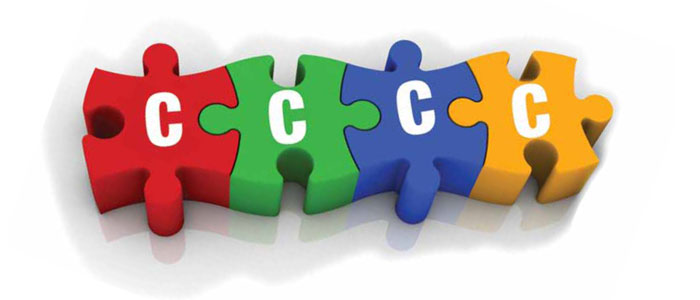
TL;DR
Emna Ayadi contact me ower Twitter to provide my story on four C’s for software testers: Communication, Collaboration, Critical Thinking, and Creativity.
My first plan was to write four separate stories, but thinking about my stories, I realized that I have one recent story that touches all four C’s.
Critical Thinking
Imagine a project with a very complicated business domain. So complicated that selecting a feature using the user interface, a complicated calculation that involves many functions is triggered. Input and output are files that contain commands for configuring a complicated piece of hardware. The test mission is to document how complicated features work in the form of light test cases where features are described in the way of pictures. Test data are minimal examples for each feature separately. Using pictures and minimal input data, we can get onboard new testers very quickly. And now comes into play part about critical thinking. We got an addition to the test team, a part-time student form FER. I know that students from FER are outstanding in critical thinking. He read the ongoing document with test cases as part of the project onboarding process. And based on that solid ground that described the system and domain that it tries to automate, his critical thinking was unleashed. He contributed to new test cases that I did not think of. He is now responsible for the document, and by review it, I learn about the system.
In the future, we plan a workshop where we will try to establish a combinatorial formula that would reveal full system feature coverage.
Collaboration
Delegate, delegate, delegate! As a team leader, your responsibility is to set solid ground where critical thinking and creativity would grow. Then you can easily create task chunks and delegate them to team members. Direct your own creativity and critical thinking in creating solid ground enablers and task creation/delegation. After that, many questions would arise. Help testers by answering them or by asking to follow up questions.
The future plan is to promote collaboration culture as more as possible. Based on my experience, the current default mode is solo work.
Communication
For communication, we opened a Teams channel named testing and adding all testers. All communication goes through that channel, if somebody starts private channel communication, we have a rule that this should be rerouted to test channel. And during working hours, answering questions in the test channel has a higher priority. As team leader, answering those questions must be a top priority. By answering them immediately, your team members would grow confidence that those questions are very important for you.
Communication must be fast, meaningful, and not technology constrained. The plan is to investigate what the future is bringing in that field. Discord looks very promising.
Creativity
By reading the test document, we also triggered student creativity. He figured out how to set Google search terms to find missing points about system features. Now we have several Youtube videos that make the onboarding process even shorter, we tested it on the new addition of developers.
For the future, the plan is to present this story to other team members in our knowledge-sharing workshops.


